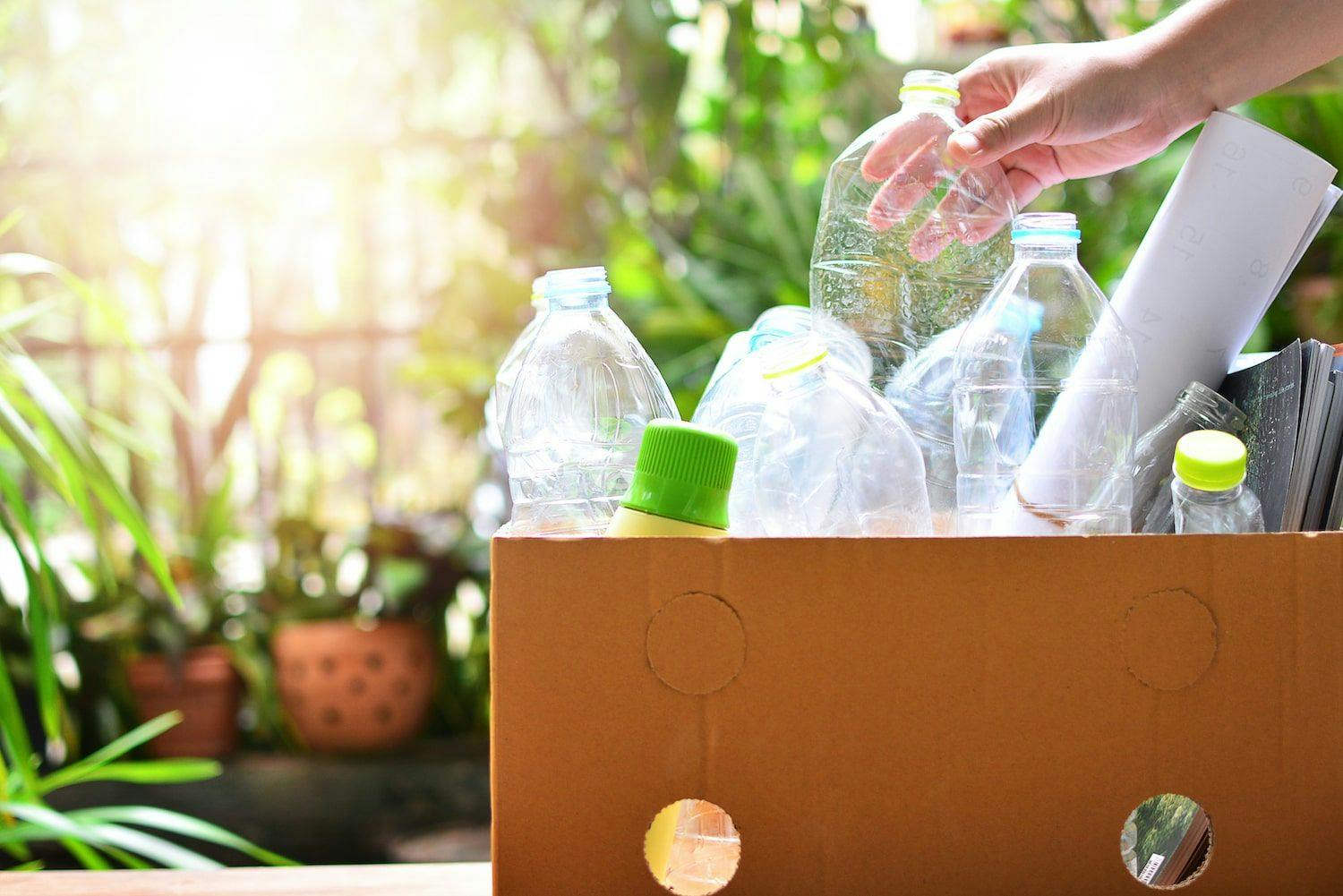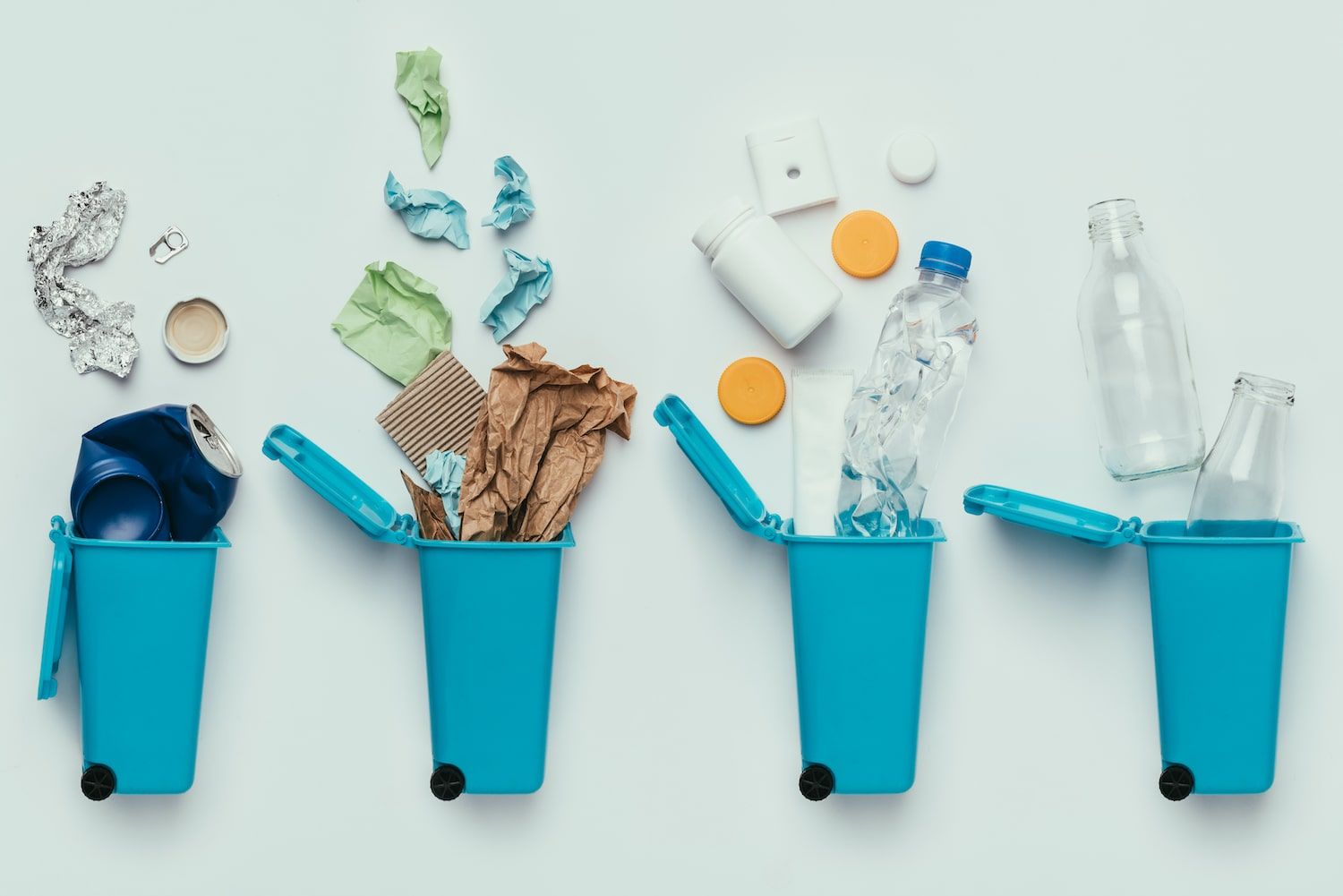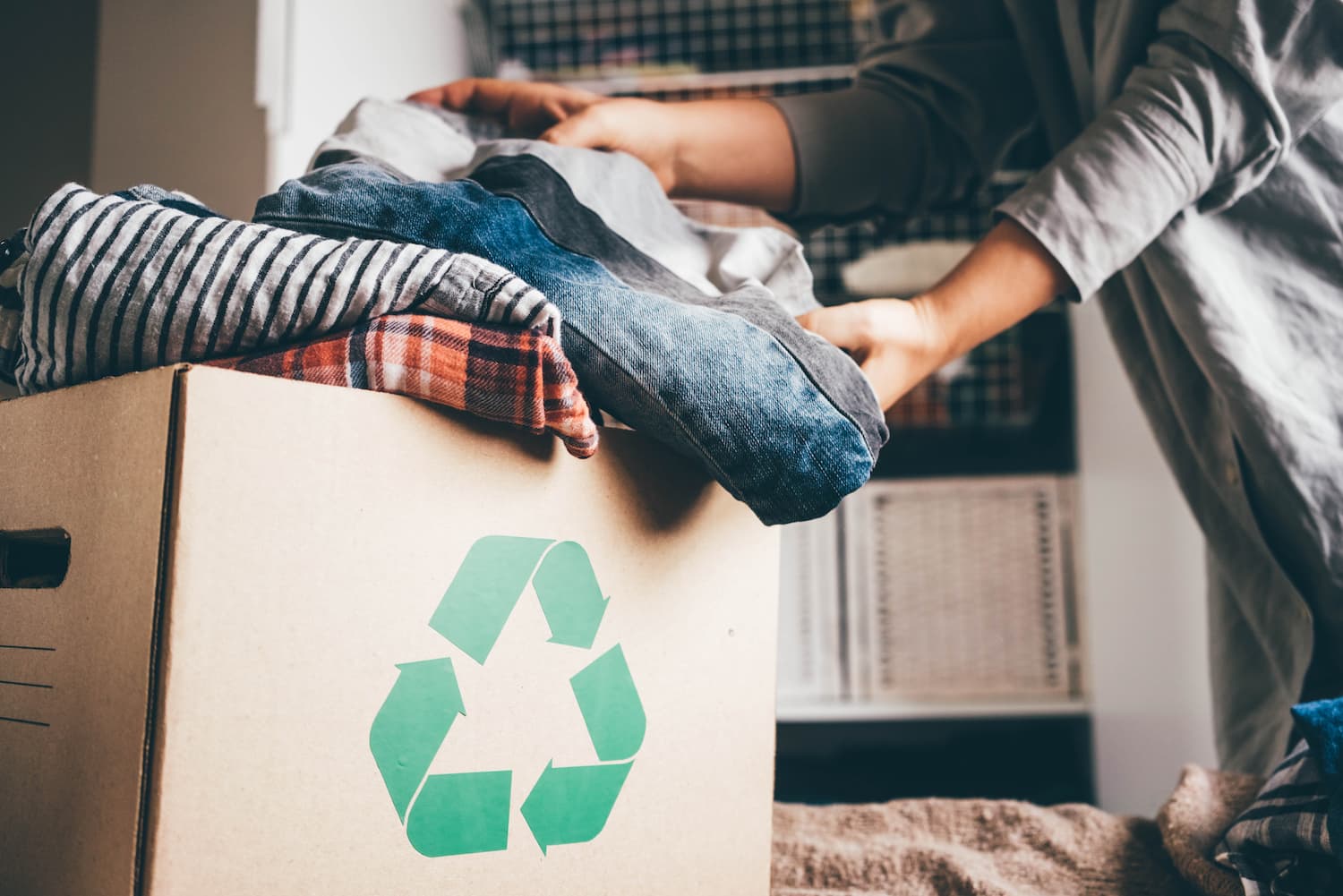
After a year of working from home, the Happiful team share their tips for reducing household waste
I’m not sure about you but I’ve become much more aware of how much waste I produce at home in the last year. Alarmingly aware, in fact.
Where we might usually dispose of rubbish outside of our homes throughout the day - at work, school, in public spaces - with more time spent at home, there’s nowhere but our own household bins for us to dispose of our rubbish.
Of course, the impact of our consumption on the planet isn’t a new issue. Every year, the Earth yields billions of tons of natural resources and we know that, at some point (in the not too distant future), it will run out. But, somehow, being confronted with full-to-the-brim wheelie bins and lacking local recycling options, the pandemic has brought the issue to the front of mind for many of us.
The last decade has been the hottest on record, and we’re now facing a climate emergency of unparalleled proportions. If we don’t make significant and rapid changes, we’ll see continued rising global temperatures, the melting of icecaps, continents on fire and rapid deforestation. That’s why we must think again about what we throw away – seeing not waste, but opportunity.
As a B Corp, Happiful is dedicated to leaving a positive stamp on the world by making sure our physical impact is as low as possible. Our eco-pledge is at the forefront of our minds and defines how we do business.
But, we know it’s important to not only commit to reducing our environmental footprint as an organisation, but we must also use our voice to educate. After all, corporate responsibility is key but our individual actions are also important in ensuring a better future for the planet.
So, here are some simple ideas of what you can do to reduce, reuse and recycle - with some great tips from members of the Happiful team!
Look for sustainable alternatives to the products you regularly buy
“My advice would be to notice what you keep buying again and again and see if there are any alternative options that may be more sustainable,” says Senior Writer Kat.
“For example, I noticed I was buying cotton pads constantly so I've now switched to washable, reusable bamboo pads instead - saving money and reducing waste!”
Here are some other ideas of items you could switch:
- For everyday household items like hand soap and shampoo, buy a bigger refill bottle and decant your product, rather than getting a new bottle with a pump each time.
- For household cleaning products, could you choose more planet-friendly options, like biodegradable, plastic-free wipes?
- Instead of single-use food wraps like clingfilm, invest in some reusable alternatives. There are lots of options here, from silicone covers to beeswax wraps.
- Always carry a reusable bag for when you’re out shopping. And, for fresh produce, opt for paper bags or reusable mesh bags over plastic.
- If you menstruate, why not consider sustainable period products like a menstrual cup, reusable sanitary towels or a reusable tampon applicator? Check out our fellow B Corp Dame - we’re big fans.

See the opportunity in your rubbish
From something as simple as washing out a jar and using it as a food container or a vase, to upcycling your furniture, there are so many ways you can breathe life into your unused items.
And it’s true what they say - one person’s waste is another person’s treasure. This year I’ve sold or given away more unused items than I ever have before. So, where possible, create a listing on Facebook marketplace or offer items to your friends or family - don’t assume that just because you don’t love something any more, that no one else will.
“I have donated almost half my wardrobe to local charities who put clothes bags through the door,” says Digital Marketing and Content Officer Katie.
As well as charity shops, there are lots of brilliant schemes for clothes, tech and beauty product recycling, some even offer take-back incentives, like a money off voucher.
Think before you buy
“I found I have purchased fewer clothes this year. I would like to continue with that,” says Creative Lead Charlotte. She also tells me that, with all the social events that are likely to start filling the diary as we resume normal life, she’s not sure if that will be a habit that continues. And I completely agree.
Purchasing less fast fashion has been a brilliant option while I’ve been at home for the last year, but will this be long forgotten once I’m back in the office and have more social plans?
Kat offers a solution that might help, though. “I now do quarterly check-ins with my wardrobe where I take everything out and audit it. This gives me a chance to see if there's anything that needs fixing/adjusting and if there's anything missing I need to buy (I then make an effort to buy from a sustainable brand if possible).
“Having this quarterly process in place stops me from buying things 'just because' and makes me think harder about whether or not I really need anything new.”

Get creative
Always try to see the opportunity in sustainability. You might find a new skill, hobby or adapt a lifelong habit.
Admin Assistant and self-confessed present wrapping fan Debs tells me the biggest change she has made is opting for sustainable gift wrapping. “I bought a huge roll of brown paper two years ago at Christmas and have used it ever since for all gifting.
“I always used copious amounts of ribbon, bows and plastic confetti. But I now decorate them with raffia ribbon, which is biodegradable and recyclable, and flowers, leaves or herbs (Lavender or Rosemary) from my garden. If it's for the children I attach wrapped chocolates, sweets or candy canes at Christmas. There are some great ideas on Pinterest.”
And Katie says that she’s loved getting creative, too. “I make my own body scrub now from sugar and coconut oil because one pot would last a week and would then go straight into landfill.”
We have to remember that, sometimes, doing the right thing isn’t the easiest option. It might be more costly, take you longer to research or require some effort to find the right option for you. But doing nothing really isn’t an option any more. Even the smallest change is a change worth making.
For more advice on how to live sustainably and reduce your consumption, here are some resources that can help:
- The seven-day plastic-free challenge: Is it possible to kick the plastic habit? Happiful's Kathryn Wheeler gave it a go.
- Easy environment-savers: From ditching cling film to choosing charity shops, here are some simple (and perhaps surprising) steps to a more sustainable lifestyle.
- 10 eco-friendly life hacks: Save the planet, save money, and save time with these DIY, environmentally-friendly tips.
- The planetary diet: Registered nutritionist Rhiannon Lambert explores the diet that can help you save the planet.

